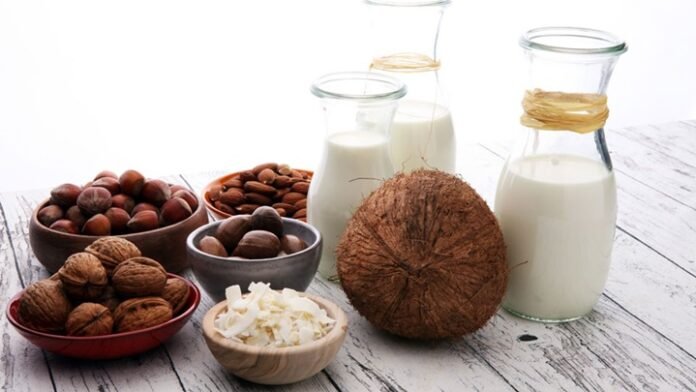Food intolerances are becoming increasingly common, with many people discovering they need to adjust their diets due to sensitivities to dairy, gluten, eggs, and more. Thankfully, the rise in awareness has led to a wealth of alternative products that make it easier to maintain a balanced, enjoyable diet without triggering discomfort. Whether you’re newly diagnosed or simply seeking options for guests with food restrictions, here’s a guide to some of the best alternatives for common food intolerances.
1. Dairy-Free Alternatives
Lactose intolerance or a dairy allergy can be challenging, especially given how prevalent dairy is in many foods. Fortunately, the market is filled with non-dairy alternatives that offer a similar taste and texture to traditional dairy products.
Milk Alternatives:
- Almond Milk: A light, nutty flavor that works well in smoothies, coffee, and cereal.
- Oat Milk: Creamy and slightly sweet, oat milk has gained popularity for its rich texture and ability to froth well, making it a favorite for coffee drinks.
- Soy Milk: One of the most protein-rich non-dairy milks, it’s a versatile substitute for cooking and baking.
Cheese Substitutes:
- Vegan Cheeses: Brands like Daiya and Violife offer cheeses made from nuts, soy, or tapioca starch. They melt well and come in various flavors like mozzarella, cheddar, and cream cheese.
- Nutritional Yeast: Often used to replicate the cheesy flavor in dishes, nutritional yeast is also packed with B-vitamins and offers a nutty, cheesy taste.
Yogurt and Ice Cream Alternatives:
- Coconut or Almond-Based Yogurt: These dairy-free yogurts provide a similar texture to traditional yogurt, with added probiotics for gut health.
- Dairy-Free Ice Cream: Brands like So Delicious and Ben & Jerry’s now offer coconut, almond, or cashew-based ice creams that are rich and creamy, without the lactose.
2. Gluten-Free Options
For those with gluten intolerance or celiac disease, eliminating wheat, barley, and rye can feel daunting. However, gluten-free alternatives are widely available, making it easier to enjoy your favorite foods.
Bread and Pasta Alternatives:
- Gluten-Free Bread: Many brands now offer delicious gluten-free bread, made from alternative flours like rice, quinoa, or potato starch. These breads often toast well and work for sandwiches or breakfast toast.
- Rice or Quinoa Pasta: Gluten-free pasta options have expanded significantly, with rice, quinoa, and even chickpea pastas providing texture and flavor similar to traditional wheat pasta.
Flour Substitutes:
- Almond Flour: A great substitute for baking, almond flour is both gluten-free and low in carbohydrates, making it a good choice for people with gluten intolerance or those on low-carb diets.
- Coconut Flour: Another gluten-free option, coconut flour adds a hint of sweetness to baked goods and works well in cookies, muffins, and cakes.
- Oat Flour (gluten-free certified): A fiber-rich, versatile flour substitute, oat flour works well in both sweet and savory dishes. Just make sure it’s labeled gluten-free to avoid cross-contamination.
3. Egg Substitutes
Egg allergies or dietary preferences like veganism often require finding substitutes that can mimic the binding or leavening properties of eggs in recipes.
Plant-Based Egg Replacements:
- Flaxseed or Chia Seeds: A popular egg substitute in baking, combining ground flaxseed or chia seeds with water creates a gel-like consistency that can act as a binder in cookies, muffins, and pancakes.
- Aquafaba: The liquid from a can of chickpeas, aquafaba can be whipped like egg whites to create light, fluffy meringues or used in other egg-free desserts.
- Commercial Egg Replacers: Products like Bob’s Red Mill or JUST Egg are specifically designed for baking or scrambling and work well in most recipes that call for eggs.
4. Soy-Free Products
Soy is one of the most common allergens, and since it’s used in a wide variety of processed foods, finding alternatives can sometimes be tricky.
Soy Sauce Alternatives:
- Coconut Aminos: A soy-free and gluten-free alternative to soy sauce, coconut aminos offer a similar umami flavor with a slightly sweeter taste. They work well in stir-fries, marinades, and dressings.
Protein Substitutes:
- Pea Protein: For those avoiding both soy and dairy, pea protein is a great alternative in protein powders and meat substitutes. It’s rich in protein and often found in products like Beyond Meat and Ripple plant-based milk.
- Hemp or Rice Protein: Both are also good sources of plant-based protein and can be used in smoothies or added to recipes for extra protein.
5. Nut-Free Alternatives
For those with nut allergies, it’s essential to find products that offer similar benefits without the risk of allergens.
Seed Butter:
- Sunflower Seed Butter: A safe and creamy alternative to peanut butter, sunflower seed butter offers a similar texture and can be used in sandwiches, smoothies, or as a dip for fruits and vegetables.
- Tahini (Sesame Seed Butter): This creamy spread is a great substitute for nut butters, especially in savory dishes or dressings.
Nut-Free Baking:
- Coconut Flour and Oat Flour: Both of these flours are excellent options for nut-free baking and can be used in many recipes that traditionally call for almond flour or other nut-based flours.
Conclusion
Food intolerances can make eating and cooking feel like a challenge, but with the wide variety of alternative products available today, there’s no need to sacrifice taste or nutrition. Whether you’re avoiding dairy, gluten, soy, eggs, or nuts, the growing availability of substitutes ensures that you can enjoy delicious, satisfying meals without discomfort. By incorporating these alternatives into your pantry, you’ll be prepared to accommodate not only your own dietary needs but also those of guests with food sensitivities.
Embrace the creativity that comes with discovering new products and enjoy the benefits of a diet that works for you!

